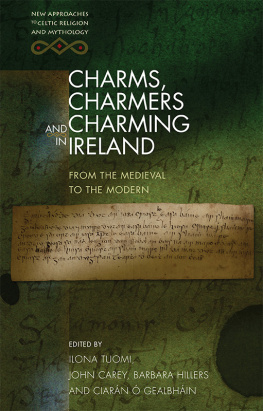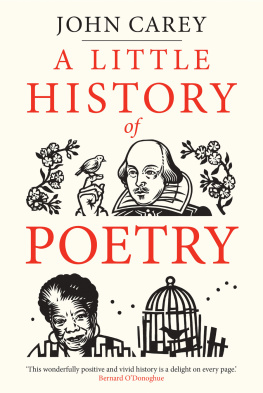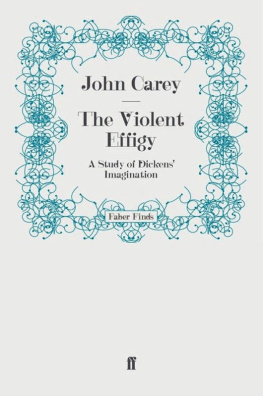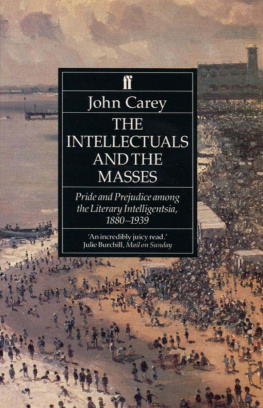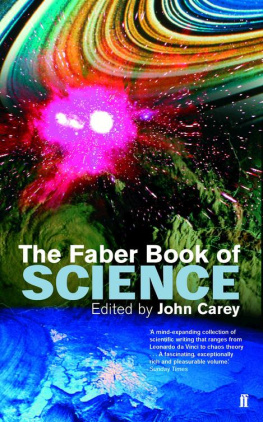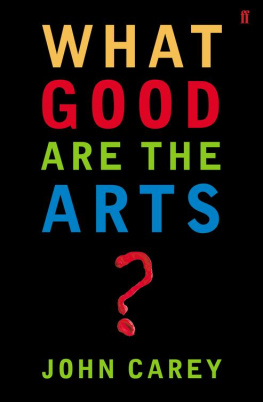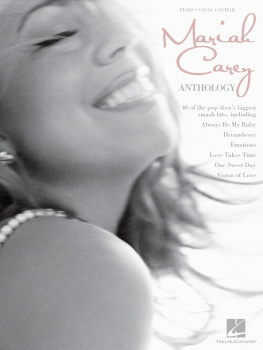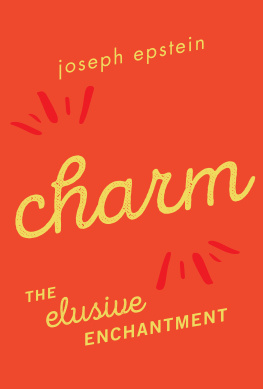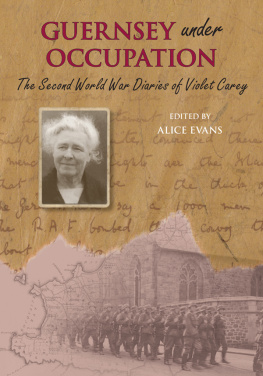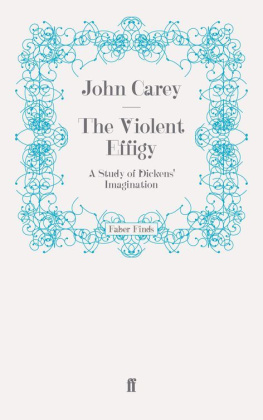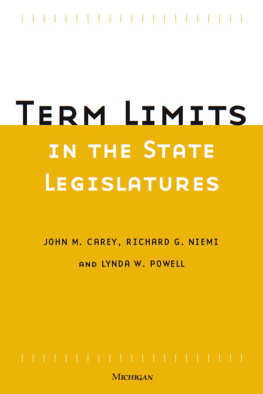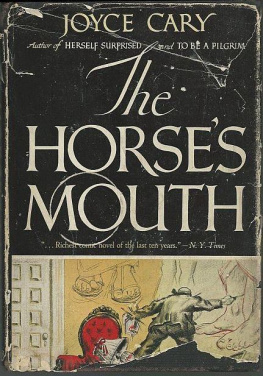NEW APPROACHES TO CELTIC RELIGION AND MYTHOLOGY
CHARMS, CHARMERS AND CHARMING IN IRELAND
NEW APPROACHES TO CELTIC RELIGION AND MYTHOLOGY
Series Editor
Jonathan Wooding, University of Sydney
Editorial Board
Jacqueline Borsje, University of Amsterdam
John Carey, University College Cork
Joseph F. Nagy, University of California, Los Angeles
Thomas OLoughlin, University of Nottingham
Katja Ritari, University of Helsinki
NEW APPROACHES TO CELTIC RELIGION AND MYTHOLOGY
CHARMS, CHARMERS AND CHARMING IN IRELAND
FROM THE MEDIEVAL TO THE MODERN
EDITED BY
ILONA TUOMI, JOHN CAREY, BARBARA HILLERS AND CIARN GEALBHIN
The Contributors, 2019
All rights reserved. No part of this book may be reproduced in any material form (including photocopying or storing it in any medium by electronic means and whether or not transiently or incidentally to some other use of this publication) without the written permission of the copyright owner. Applications for the copyright owners written permission to reproduce any part of this publication should be addressed to the University of Wales Press, University Registry, King Edward VII Avenue, Cardiff CF10 3NS.
www.uwp.co.uk
British Library CIP Data
A catalogue record for this book is available from the British Library.
ISBN: 978-1-78683-492-8
eISBN: 978-1-78683-494-2
The right of the Contributors to be identified as authors of this work has been asserted in accordance with sections 77 and 79 of the Copyright, Designs and Patents Act 1988.
The publisher has no responsibility for the persistence or accuracy of URLs for any external or third-party internet websites referred to in this book, and does not guarantee that any content on such websites is, or will remain, accurate or appropriate.
Cover image: John Lysaght MS fragment, a toothache charm (main image); Add. MS 30512 (folio 72), the Caput Christi charm (background image) The British Library Board.
Cover design: Olwen Fowler
T he study of charms is now again a burgeoning field, with research networks exploring the transnational phenomenon of charms and words of power across Europe and beyond. The richness of Celtic tradition is a byword, so many people would see Irish Studies as a natural participant in these networks. Access to the Irish sources is challenging even for specialists, however, and Celtic Studies has moreover only recently emerged from a period of fraught reflection on the nature even the validity of oral tradition, as well as upon the diversity, or otherwise, of early Irish religious culture. The contributions in this volume, however, demonstrate the great strength of work now being done on Irish charms, as well as the energy that Irish studies of religion have recently derived from collaborations with Europe. Many of the contributions in this volume also bear witness to the advances that have been made in cataloguing the material collected by our predecessors. Jacquelines Borsjes further proposal, in her opening contribution, that we should now seek to reassess the theorising of religion by the pioneering scholars who gathered so much of our primary data is a timely one. I hope prospective contributors to this series will rise to her challenge, which chimes strongly with our manifesto.
An especially attractive aspect of the study of charms is the unarguably performative character of the genre. As performative texts, whilst often found in a literary context, charms remind us that much of what comes down to us on the page cannot be solely confined to it which is a salutary reminder in the context of some recent approaches to Celtic Studies. In the context of the editors stated aim to encompass the medieval and modern traditions equally, we should also celebrate the diachronic richness of this collection. Charms, being formulaic and conservative in form, offer something for those who still wish to reach beyond the present text into the mentalities of the past. They are a data-set over which medieval philologists can meet with folklorists, to their mutual benefit. All the studies in this collection, by an international selection of scholars of Irish culture, folklore and literature, offer both a vision of the potential of this data set, as well as excellent models for the approaches required to it.
Jonathan M. Wooding, Series Editor
ATDM | Altram Tige D Medar |
DIL | E. G. Quin, Dictionary of the Irish Language |
HDA | H. Bchtold-Stubli (ed.), Handwrterbuch des deutschen Aberglaubens |
ITS | Irish Texts Society |
KZ | Kuhns Zeitschrift; i.e., Zeitschrift fr vergleichende Sprachforschung auf dem Gebiete des Deutschen, Griechischen und Lateinischen; Zeitschrift fr vergleichende Sprachforschung auf dem Gebiete der indogermanischen Sprachen |
NFC | National Folklore Collection |
NFC S | NFC Schools Collection |
RC | Revue celtique |
RIA | Royal Irish Academy |
TCD | Trinity College Dublin |
UCD | University College Dublin |
ZCP | Zeitschrift fr celtische Philologie |
Jacqueline Borsje is Senior Lecturer in Religious Studies at the University of Amsterdam.
John Carey is Professor of Early and Medieval Irish at University College Cork.
Joseph J. Flahive is Project Assistant to the Dictionary of Medieval Latin from Celtic Sources at the Royal Irish Academy.
Cathinka Dahl Hambro is Associate Professor of English at UiT the Arctic University of Norway.
Barbara Hillers is Associate Professor of Folklore in the Department of Folklore and Ethnomusicology in Bloomington, Indiana. From 2013 to 2018 she taught in the Delargy Centre for Irish Folklore and the National Folklore Collection at University College Dublin.
Ksenia Kudenko holds a PhD in Irish and Celtic Studies from Ulster University.
Shane Lehane lectures in Folklore, Archaeology and History in CSN College of Further Education, Cork.
Denis McArdle is the recipient of the Mire MacNeill Scholarship in Irish Folklore, 2016, with a Higher Diploma in Irish Folklore, from University College Dublin.
Bairbre N Fhloinn lectures in Irish Folklore and Ethnology at University College Dublin, where she is Head of Subject.
Deirdre Nuttall is an independent researcher based in Dublin.
Stiofn Cadhla is Head of Roinn an Bhaloidis: Department of Folklore and Ethnology, University College Cork.
Gearid Crualaoich is Professor Emeritus of Folklore and Ethnology at University College Cork.
Ciarn Gealbhin lectures in Baloideas/Folklore and Ethnology at University College Cork.
Ilona Tuomi is a doctoral candidate in Early and Medieval Irish at University College Cork.
Nicholas M. Wolf is an assistant curator, New York University Library, and affiliated faculty, Glucksman Ireland House.


